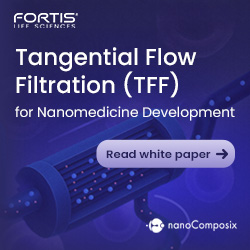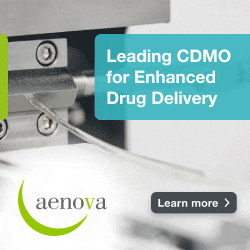iTeos Therapeutics Announces New Phase 1/2a Data Indicating Antitumor Activity of its Adenosine A2A Receptor Antagonist
iTeos Therapeutics, Inc. recently announced new clinical data from its ongoing Phase 1/2a clinical trial of inupadenant (EOS-850), a next-generation adenosine receptor (A2AR) antagonist, at the American Society of Clinical Oncology (ASCO) Annual Meeting 2021. Updated results from the single-agent dose-escalation and expansion portions of the trial provided evidence of durable antitumor activity in patients with advanced solid tumors and indicated safety consistent with previously reported results. Three serious adverse events considered possibly related to treatment with inupadenant had plausible alternate causes and do not represent a new safety concern for the program. Additionally, preliminary analyses of pre-treatment tumor biopsies indicated that the expression of A2AR is associated with clinical outcomes in patients with solid tumors treated with single agent inupadenant.
“We are pleased with the durability of the anti-tumor responses we have observed to date with our highly selective A2AR antagonist, inupadenant, in patients with advanced cancers. These early-stage results support the development for the treatment of cancer of inupadenant, a selective inhibitor of A2AR, which is known to play a crucial role in immunosuppression in the tumor microenvironment.” said Joanne Jenkins Lager, MD, Chief Medical Officer of iTeos Therapeutics. “We have used a proprietary assay to identify A2AR expression as a biomarker that may be predictive of clinical benefit. These new biomarker findings provide insight into the mechanism of action of inupadenant, informing our selection of potential indications, and may allow us to identify patients more likely to benefit from inupadenant. We are continuing to evaluate combinations with pembrolizumab and chemotherapy in our ongoing Phase 1b/2a trial with the goal of improving outcomes for patients.”
The ongoing Phase 1/2a trial is evaluating the safety, tolerability, pharmacokinetics (PK), pharmacodynamics (PD) and antitumor activity of inupadenant monotherapy to define the maximum tolerated dose (MTD) and recommended Phase 2 dose of inupadenant as a single agent and in combination with pembrolizumab and/or chemotherapy in patients with advanced solid tumors. As of the data cut-off (February 26, 2021), 43 patients had enrolled in the single-agent dose-escalation and expansion parts of the study.
Results presented at ASCO 2021 provided an update on 21 patients enrolled in the single-agent dose-escalation and new data on 22 patients enrolled in the dose expansion. Durable responses and stable disease greater than six months were observed in five patients with advanced solid tumors, including:
- previously reported partial responses: ongoing for more than 12 months in one patient with castrate-resistant prostate cancer, and lasting for more than 8 months in one patient with melanoma resistant to both pembrolizumab and ipilimumab; and
- stable disease in a patient with non-small cell lung cancer enrolled in the expansion, with ongoing treatment for more than 10 months.
The safety of inupadenant monotherapy was consistent with previously presented data. The most frequent adverse events were fatigue, anemia, decreased appetite and constipation. Drug-related serious adverse events (acute myocardial infarction, atrial fibrillation, and pericardial effusion) were reported in three of the 43 enrolled patients. Evaluation of pre-treatment biopsies indicated that higher expression of A2AR was associated with longer survival and either tumor regression or stable tumor size in patients with solid tumors treated with single agent inupadenant. The e-poster and abstract can be accessed on the ASCO conference website. The abstract and presentation details are as follows:
Title: Phase 1 trial of the adenosine A2A receptor antagonist inupadenant (EOS-850): Update on tolerability, and antitumor activity potentially associated with the expression of the A2A receptor within the tumor.
Session Title: Developmental Therapeutics—Immunotherapy
Abstract #: 2562
Authors: Laurence Buisseret, et al.
Based on the promising Phase 1/2a data to date, iTeos plans to further evaluate inupadenant in combination with pembrolizumab and in combination with chemotherapy in Phase 1b/2 studies, with an initial focus on patients with castrate-resistant prostate cancer, anti-PD-1-resistant melanoma and triple negative breast cancer. iTeos will continue to evaluate A2AR and other potential predictive biomarkers in the inupadenant clinical development program to ensure optimal therapeutic combinations and identify patients most likely to benefit from treatment.
Elevated levels of adenosine found in the tumor microenvironment are known to be immunosuppressive, by inhibiting A2AR, the only high-affinity adenosine receptor expressed on different immune cells found in the tumor micro-environment. Inupadenant (EOS-850) is the first insurmountable A2AR antagonist tailored for application in immuno-oncology, currently in clinical development. Inupadenant was designed by iTeos’ scientists to remain potent at the high adenosine concentrations found in the tumor micro-environment and maintain continuous target coverage in multiple tumor types. Inupadenant has a very high selectivity for A2AR compared to the other adenosine receptors and is non brain penetrant, two characteristics that should improve its safety. With this profile, we believe that inupadenant has the potential for enhanced antitumor activity as compared to other A2AR antagonists currently in clinical development.
iTeos Therapeutics is a clinical-stage biopharmaceutical company pioneering the discovery and development of a new generation of highly differentiated immuno-oncology therapeutics for patients. iTeos Therapeutics leverages its deep understanding of the tumor microenvironment and immunosuppressive pathways to design novel product candidates with the potential to fully restore the immune response against cancer. The company’s innovative pipeline includes two clinical-stage programs targeting novel, validated immuno-oncology pathways designed with optimized pharmacologic properties for improved clinical outcomes. The initial antibody product candidate, EOS-448, is a high affinity, potent, anti-TIGIT antibody with a functional Fc domain, designed to enhance the anti-tumor response through a multifaceted immune modulatory mechanism. An open-label Phase 1/2a clinical trial of EOS-448 is ongoing in adult cancer patients with advanced solid tumors with preliminary data indicating clinical activity as a monotherapy and a favorable tolerability profile. The company is also advancing inupadenant, a next-generation adenosine A2A receptor antagonist tailored to overcome cancer immunosuppression. iTeos is conducting an open-label, multi-arm Phase 1/2a clinical trial of inupadenant as a single-agent and in combinations in adult cancer patients with advanced solid tumors. Preliminary results indicate encouraging single-agent activity in the dose escalation portion of the trial. iTeos Therapeutics is headquartered in Cambridge, MA, with a research center in Gosselies, Belgium.
Total Page Views: 2130














